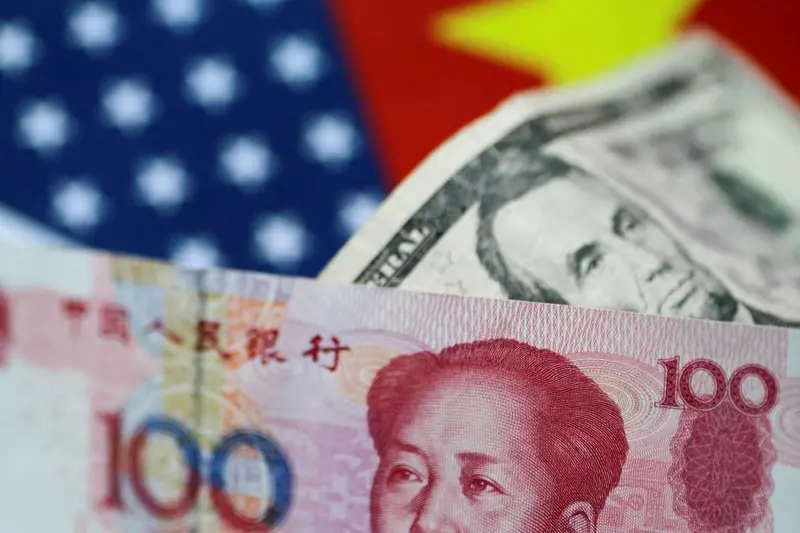PHOTO
The dollar fell more than half a percent on Friday, with global risk appetite boosted by the apparent clearing of two clouds that have been hanging over world markets -- U.S.-China tariffs due on Dec. 15 and Britain's election.
The U.S.-China trade war looked set to de-escalate after U.S. sources said Washington had set out its terms for a trade deal, offering to suspend some of the new wave of tariffs due on Sunday and to cut others.
The Japanese yen fell 0.3% and is approaching its lowest versus the dollar in more than six months as demand for the safe-haven currency went down.
The dollar index was down 0.6%.
After 17 months of market-moving comments from both the U.S. and China sides of the trade war, some uncertainty remains and traders will be waiting until the Dec. 15 deadline has passed before fully boosting risk appetite.
"Only if it's actually signed and it's really official then the market will fully price it in," said Commerzbank FX strategist Thu Lan Nguyen.
Although the offshore yuan was initially boosted on trade deal hopes, it was down 0.6% versus the dollar in early London trading, partially erasing the previous day's gains.
Nguyen said she expected the yuan to appreciate to below 6.9 - at least temporarily - when a trade deal is signed.
Meanwhile, European currencies were boosted by the market-friendly results of Britain's election, which delivered a bigger-than-expected parliamentary majority for Prime Minister Boris Johnson's pro-Brexit Conservative party.
The euro was up 0.4% against the dollar, having hit a four-month high in overnight trading before paring gains.
The pound sterling rose as much as $1.3516 versus the dollar and 82.78 pence per euro after an exit poll suggested the Conservatives would win an outright majority.
With results still coming in, the Conservatives look set to win their best result since 1987.
Markets consider that this result paves the way for Britain to negotiate its departure from the European Union. But, with a trade deal deadline of December 2020, the uncertainty is far from over.
"There is a risk of some disappointment if businesses continue to hold back on spending until they have more clarity on the future trading relationship," currency analysts at MUFG wrote in a note to clients.
(Editing by Timothy Heritage)





















